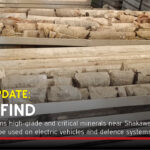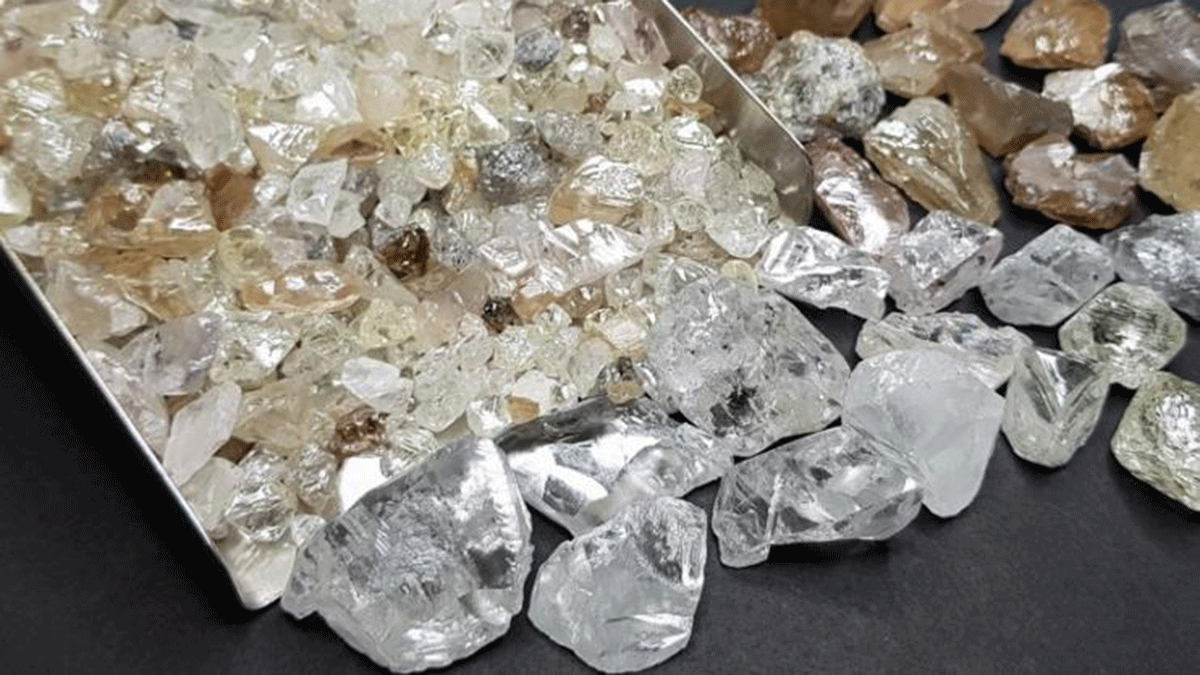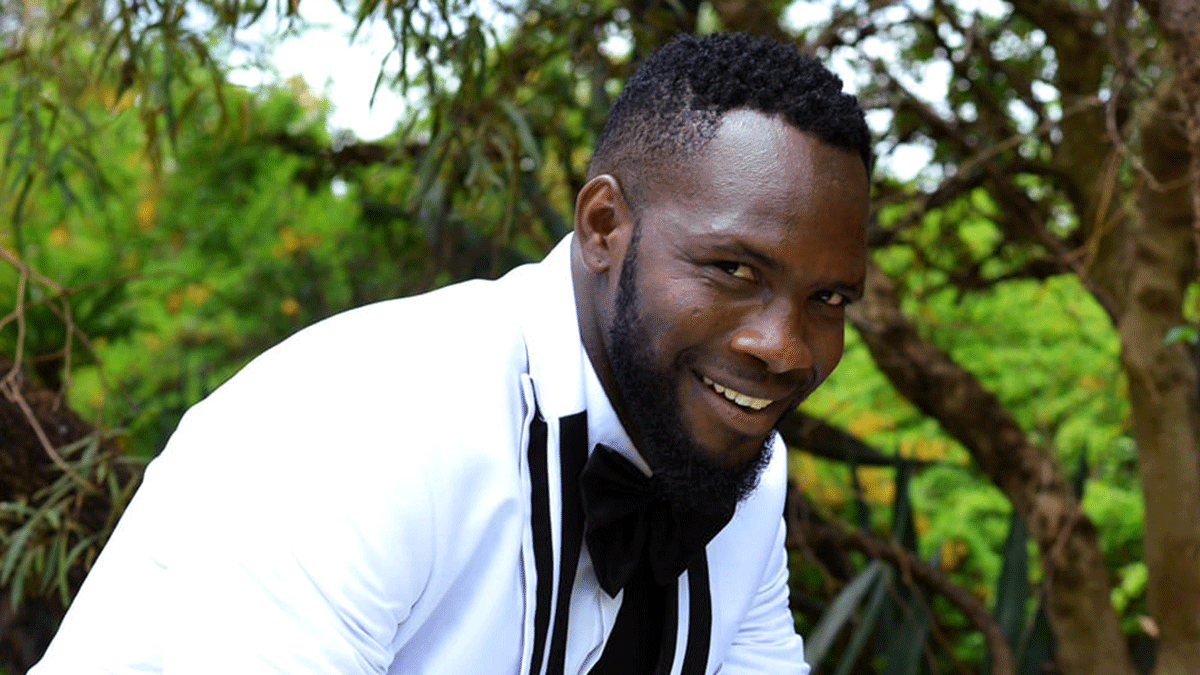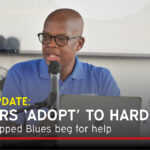Meet the boss
He has experienced crushing poverty first hand and has been a hunter gatherer, living a nomadic lifestyle in the wilderness.
But because of hard work and focus, today Lempheditse Odumetse, popularly known as MC, manages one of the biggest tourism businesses in the country and is Vice Chairperson of the Hospitality and Tourism Association of Botswana (HATAB). In this MEET THE BOSS interview, Odumetse who is in his mid 40s talks to FRANCINAH BAAITSE about his life’s journey, lessons learnt and advice for those aspiring to follow in his foot steps.
What does your job entails?
I do not particularly refer to what I do as a job. I am seriously passionate about what our industry does and how it functions. In doing so, my career has evolved to what it is for me today. As the Managing Director of a tourism focused success story, my daily functions entail a large mix of various aspects of managing a fast moving and dynamic tourism entity.
These range from managing and directing about 800 staff, ensuring the correct compliance to our business needs and functions, liaising with the various stakeholders within industry and Government, driving and developing strategies for business success and generally ensuring that our actions and decisions of today secure the benefits for all tomorrow.
What are the challenges that come with your job and how do you overcome them?
As a person, I have never regarded challenges as something that should be considered in the negative. Challenges are exactly that – something that requires questioning and an action plan, tenacity, and diligence not to accept, but to overcome. These do and have posed themselves in many various forms over the years but accepting them and applying positive energy to resolving and achieving, is core to my approach.
Being in management position I believe you have the experience of working in the wild, have you had any close encounter with wild animals?
I have been very blessed; I have grown up in a family which has extremely close connections to the natural world. Awareness and respect of mother nature’s creatures have by default manifest themselves in me through my upbringing. As a young man, I qualified as a guide working within the heart of the Okavango Delta.
One of my specialities was to conduct guided walking safaris in some of the wildest areas of this country. Through this upbringing and my own career journey, I have had multiple interactions with most wildlife species found in our country.
Now tell us about HATAB and its role in development of communities living in tourism areas including the Okavango delta?
HATAB has a crucial role to promote and develop the tourism sector in Botswana. It also plays a significant role in the development of communities living in and around all tourism focused areas. Key to this is offering training and employment opportunities to members of these communities.
Job creation, skills development, community projects and utilization of skills, are all elements which HATAB members embrace to ensure the growth of their businesses and the tourism sector at large. As part of what the HATAB members fulfill in their business activities, Botswana as a country is taken to a global market, which in turn makes it attractive for visitors to our destination. The more success of our HATAB member businesses, the more success and development is applied to our communities.
How?
Tourism is a major earner of income to our country, and HATAB plays a crucial role in ensuring ultimately that communities and people from within these communities’ benefit.
Do you see growth in the tourism sector looking back at the past few years?
Yes, indeed, growth and development of the tourism sector has substantially improved in the years that I have been involved in this industry. It is a heart-warming observation for me today, especially seeing how many of our citizens have emerged as business owners and leaders. Over and above this, as I work with so many people every day, to see and experience the growth in our human potential, the refining of skills, the development of people, especially the youth, from grassroots level to fully functioning professionals is for me, a revelation.
As young people we dream of making it big in life or pursuing certain career paths but that changes as we grow, what was your dream as a young boy?
When I was a young boy, growing up in Sexaxa, our life was extremely different to what it is today. My mother moved from deep in the Okavango Delta to Sexaxa so that my siblings and I had access to school and an education. I think about this and reflect often how forward thinking that must have been for my mother at the time and in consideration, I value that I had the opportunity to go to school and develop my horizons the way that I did. However, we were not a well off or privileged family and I used to have to run into Maun and back to Sexaxa village to attend school.
This was the main route for the early tourism operators accessing the northern wildlife areas and parks from town. I would observe them driving out with their guests and imagine that one day I too would be able to interact with people from all over the world and can show them our incredible country and the amazing wilderness offering that we have. I imagined and dreamt of one day being able to drive a car and even possibly have the resources and opportunity to hopefully own a car of my own. As I entered adult hood, and applied myself to learning new skills, I realised that through hard work, diligent behaviour and growing ambition, more than a car can and will be achieved.
Please tell us more about your childhood ?
My family, mother, uncles, and aunts, come from deep within the Okavango Delta. They lived a nomadic lifestyle, hunting, gathering, and fishing. The nomadic village location was on an island known as Mojei and it was from there that they would range out to neighbouring areas and islands living their subsistence lifestyle. When I was a young boy, with my siblings and cousins, my mother moved us closer to town. Living in Sexaxa Village, we became pastoralists, and my job was to tend to the goats and cattle. Herding cattle in those days was a wild affair.
The animal life was far closer to town than what it is today – and as young boys, early encounters with elephant, lions, hyenas and a multitude of wildlife was as natural as what a modern-day child has in riding his or her bicycle.
Very interesting
Feeding off the wild fruit of the mangosteens, sycamore figs, jackalberry trees as well as setting bird traps, fish traps and hunting hares and rabbits so that we could eat, was totally natural. We were not sent out there with a cute little backpack, loaded with sun cream, peanut butter sandwiches, an apple and an energade. We had to fend for ourselves.
At night, our reward was the milk from the cows we herded home to the kraal. A fire was made, and knowledge was gained through story telling. Much of what I know today in terms of my natural world knowledge, was passed on to me by my uncles and the elders who shared with us their experience and the stories of their forefathers.
Sadly, this element of our culture appears to be diminishing as we evolve into a technology driven world. I was a happy child, with my cousins, full of mischief at times, but we lived a big free wild lifestyle. There were times that my family had to really scrape things together for us to even have food to eat. I know what hunger is, I learnt that in my childhood. Possibly that is one of the things that inspires me the most today.
What advice can you give to a younger you?
The ability to be distracted is more often easier than the ability to apply yourself towards a positive bigger picture for yourself and those around you. Be true to who you are, work hard, do not break the rules, make mistakes, but only once, make the learnings from those mistakes to improve, be better today for tomorrow. Do not be averse to asking for advice or help and apply your learnings from what you receive. Celebrate the achievements, work at the losses. I meet many young people today who believe that they are entitled because they have studied for three or four years and are entering the job market.
The advice that I would give the younger me is to work hard at being the better me through diligence, commitment, and continuous learning. Everyone starts from the bottom.















